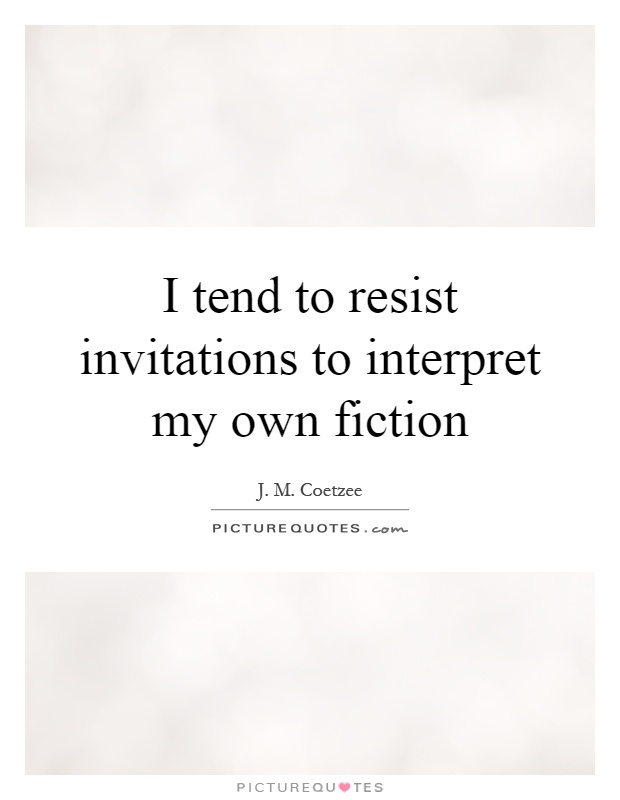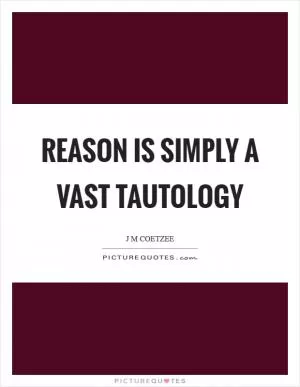I tend to resist invitations to interpret my own fiction

I tend to resist invitations to interpret my own fiction
J.M. Coetzee, the renowned South African author and Nobel laureate, is known for his complex and thought-provoking works of fiction. Throughout his career, Coetzee has often been asked to provide interpretations of his own writing, to shed light on the deeper meanings and themes within his novels. However, Coetzee has consistently resisted these invitations, preferring to let his work speak for itself and allowing readers to draw their own conclusions.One of the reasons why Coetzee may resist interpreting his own fiction is that he believes in the power of ambiguity and multiple interpretations. By leaving his novels open to interpretation, Coetzee allows readers to engage with his work on a personal level, to bring their own experiences and perspectives to the text. This creates a more dynamic and interactive reading experience, as readers are able to find their own meanings and connections within the story.
Furthermore, Coetzee may resist interpreting his own fiction because he values the autonomy of the reader. By providing a definitive interpretation of his work, Coetzee would be imposing his own views and limiting the possibilities for readers to engage with the text in their own way. By allowing his novels to remain open-ended and ambiguous, Coetzee empowers readers to come to their own conclusions and interpretations, fostering a more active and engaged reading experience.
Additionally, Coetzee may resist interpreting his own fiction because he believes in the importance of the creative process. For Coetzee, writing is a deeply personal and introspective act, and he may feel that providing interpretations of his work would diminish the creative journey that he has undertaken. By keeping his interpretations private, Coetzee is able to preserve the integrity of his writing process and maintain the mystery and complexity of his work.












 Friendship Quotes
Friendship Quotes Love Quotes
Love Quotes Life Quotes
Life Quotes Funny Quotes
Funny Quotes Motivational Quotes
Motivational Quotes Inspirational Quotes
Inspirational Quotes